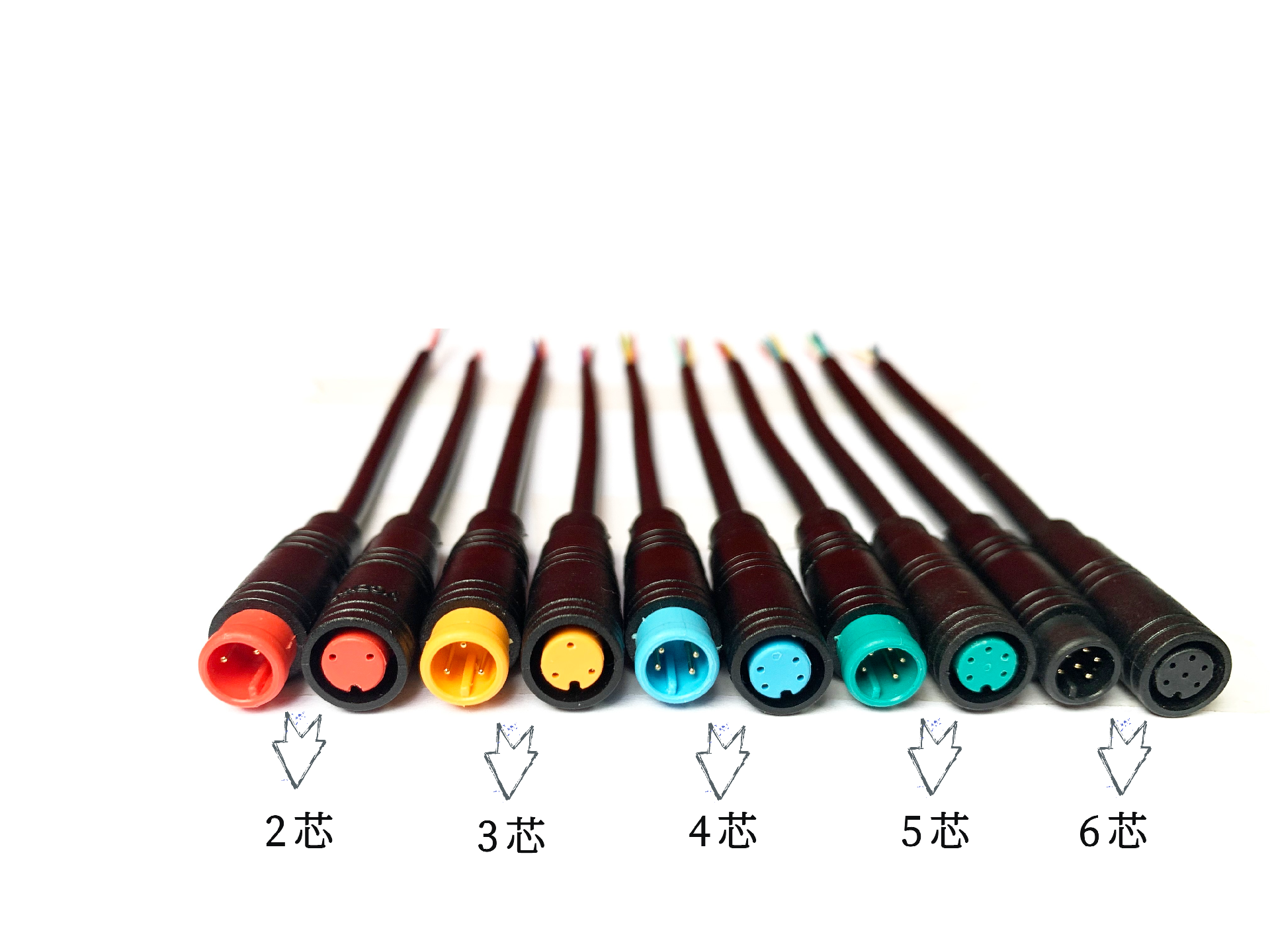News


News

Industry Standards and Certifications for M8 Waterproof Connectors: A Comprehensive Guide
Release time:2025-05-16
viewed:380
M8 waterproof connectors are critical components in industrial automation, automotive systems, renewable energy, and other applications requiring robust environmental protection. Their reliability hinges on adherence to stringent industry standards and certifications, which validate their performance, safety, and durability. This article explores the key standards and certifications governing M8 waterproof connectors, offering insights into their technical requirements and global applicability.

The International Electrotechnical Commission (IEC) 61076-2-104 standard is the cornerstone for M8 circular connectors. It specifies:
Mechanical dimensions: Ensures compatibility across brands, including thread locking (M8×1) and pin configurations (3-, 4-, 5-, 6-, or 8-pin).
Electrical performance: Defines voltage ratings (e.g., 30–60V DC) and current-carrying capacities (up to 4A).
Environmental resilience: Mandates resistance to vibration, shock, and temperature extremes (-40°C to +90°C).
This standard is widely adopted in industrial automation and aligns with sensor/actuator communication protocols.
The Ingress Protection (IP) rating system (IEC 60529) classifies waterproof effectiveness:
IP67: Protects against temporary immersion (1 meter depth for 30 minutes), ideal for outdoor LED lighting or automotive washdown environments.
IP68: Guarantees prolonged underwater operation (manufacturer-specified depth and duration), critical for marine equipment or deep-sea sensors.
Testing methods include high-pressure water jets (IPX5) and submersion (IPX7/IPX8).
UL 1977: Certifies connector safety for industrial control equipment, focusing on insulation resistance (≥100MΩ) and dielectric strength (e.g., 1.5kV AC).
CSA C22.2 No. 182.3: Validates performance in hazardous environments, such as chemical plants or mining operations.
RoHS (EU Directive 2015/863): Limits lead, mercury, and other toxic materials in connectors. Non-compliance risks market exclusion in Europe.
REACH (EC 1907/2006): Requires reporting of substances like phthalates in plastics (e.g., PVC insulation).
M8 waterproof connectors housings made from PA66+GF (glass-filled nylon) or PUR (polyurethane) must achieve UL 94 V-0 certification, ensuring self-extinguishing properties to prevent fire spread.
ASTM B117: Simulates corrosion resistance in coastal or de-icing environments via 500–1000-hour salt spray tests.
IEC 60068-2-6: Validates vibration resistance (10–2000Hz) for connectors in automotive or aerospace applications.
ISO 16750-2: Tests connectors for automotive electrical systems under extreme temperatures (-40°C to +125°C) and humidity (85% RH).
USCAR-2: Mandates cyclic humidity and mechanical durability (≥25 mating cycles) for connectors in electric vehicles.
ISO 13485: Ensures connectors meet quality management standards for medical devices, emphasizing traceability and sterilization compatibility.
USP Class VI: Certifies biocompatibility for connectors used in surgical tools or implantable devices.
ATEX Directive 2014/34/EU: Required for connectors in explosive environments (e.g., oil refineries), ensuring spark-free operation.
IECEx: Globally harmonized certification for hazardous area equipment.
The CE mark confirms compliance with EU safety, health, and environmental regulations, including EMC Directive 2014/30/EU to prevent electromagnetic interference.
Mandatory for connectors sold in China, covering electrical safety and IP ratings.
Ensures connectors do not disrupt wireless communications, critical for IoT-enabled industrial systems.
Certifies manufacturers’ quality management systems, emphasizing consistent production processes and defect prevention. For example, Shenzhen Lidelai Technology employs ISO 9001 to streamline M8 connector production.
Automotive-focused extension of ISO 9001, requiring failure mode analysis (FMEA) and rigorous supplier audits.
M8 waterproof connectors thrive in diverse industries by adhering to a complex web of standards and certifications. From IEC 61076-2-104’s mechanical precision to region-specific marks like CE and CCC, compliance ensures reliability, safety, and market access. As industries evolve, standards will increasingly address smart technologies and sustainability, pushing manufacturers to innovate while maintaining rigorous quality benchmarks. For engineers and procurement specialists, understanding these requirements is key to selecting connectors that deliver long-term performance in demanding environments.